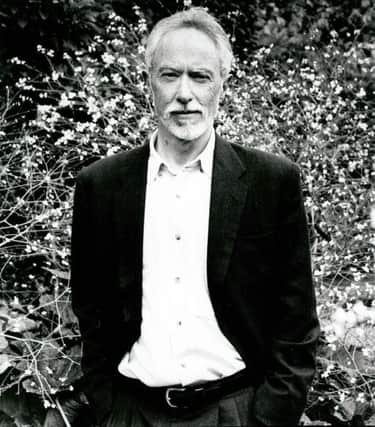Schoolboy error


David is cared for by an honorary stepfather, Simon, through whose eyes much is related, though little of consequence, and by a woman, Ines, who isn’t his mother. She and Simon “have nothing to say to each other; they have next to nothing in common.” There is no reason why this should matter, except that they have nothing of much interest to say to the reader.
The title being what it is, David is sent to school, Simon choosing the “Dance Academy” in preference to the “Singing Academy” and the “Atom School” where, seemingly, they teach about atoms. The Dance Academy is itself somewhat rum, its philosophy all about numbers, “to bring the numbers down from where they reside, to allow them to manifest themselves in our midst, to give them body, we rely on the dance.” (This may mean something or it may be a parody of some pretentious prospectus. Both seem unlikely if only because Coetzee seems to have lost his sense of humour.)
Advertisement
Hide AdAdvertisement
Hide AdThe academy is run by a very beautiful woman, perfect except for the absence of eyebrows. (This too may be significant, but of what I can’t say.) Fortunately Coetzee, by means of the academy’s janitor, disposes of her quite quickly. “Why did you do it, Dimitri? Why? Why? Why?” Some of the questions Coetzee poses after the murder are worth asking: “What if we were not ourselves, or not fully ourselves, when the action in question was performed? Was the action then ours?” This question of our responsibility for what we may do or say is of course one that comes up every week in the criminal courts where the idea of diminished responsibility is regularly examined and generally understood. Unfortunately Coetzee can’t add anything new to the discussion. More importantly, since this is after all a novel, not a philosophical tract, he entirely fails to dramatise it. Indeed, he scarcely makes any attempt to do so.
Through Simon, who carries much of the burden of what narrative there is, Coetzee offers reflections which may aim at profundity, but are merely banal. For example: “Inner qualities are qualities like kindness and honesty and a sense of justice.” No doubt, you may say, but so what? Wouldn’t it be just as true, just as meaningful, to say that “inner qualities are qualities like cruelty and dishonesty and the selfishness that disregards the needs or interests of others”? And is there, anyway, a distinction to be made between inner and outer qualities? Or is it all flummery? I suspect it is.
The characters in this novel talk like, well, nobody really. Example: “The truth is, I’ve been brooding, Simon. This has been a dark time for me, brooding on my fate. It was quite a shock to discover that I didn’t have it in me after all to accept what was due to me, namely a spell in the salt mines. Quite a shock. My manhood was involved. I was less than a man. I was a coward. That was the fact I had to face: that I was a coward... Can you blame me for feeling upset?”
It really won’t do. Coetzee has won the Booker Prize twice. The first novel in this sequence – The Boyhood of Jesus – sold 50,000 copies. If Schooldays does as well, I wonder how many readers will persist with it to the end. It reads to me like the withering of a talent.